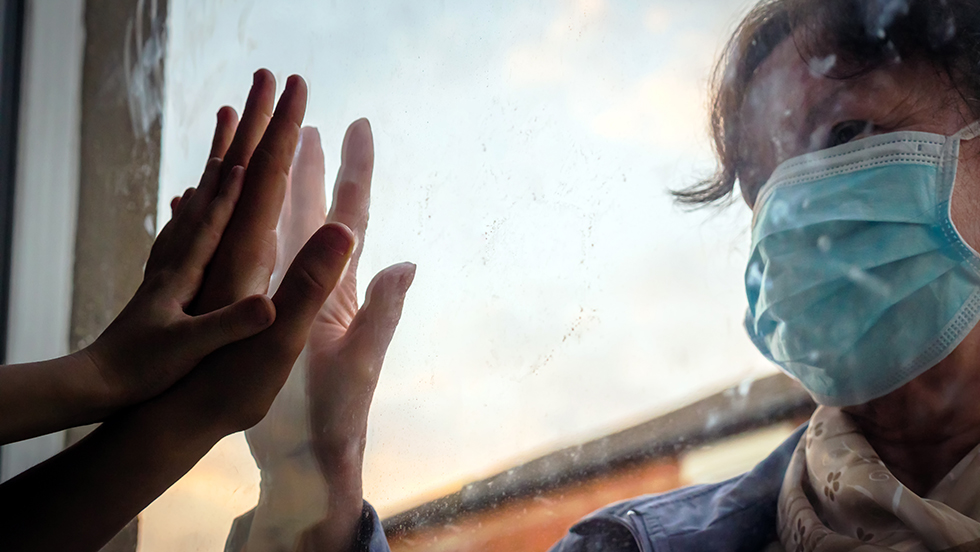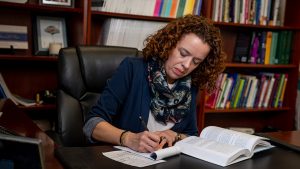
Using predictive measures to assess familial tension during lockdown.
The first two years of the COVID-19 pandemic were a roller coaster of emotion. Our collective hopes were high when the initial viral spread subsided and vaccines became widely available, but new strains felt like a return to the starting line. Katherine Fiori, PhD, professor and associate dean for foundational psychology and faculty involvement in the Adelphi University Gordon F. Derner School of Psychology, wanted to know how people were adjusting to those ups and downs.
In the summer of 2021, during a period of relatively positive feelings among the public about COVID-19, Dr. Fiori and a team of Adelphi colleagues and graduate students began collecting data for what they thought would be work on post-lockdown social reintegration by older Americans. However, the subsequent data collection times—fall of 2021 and winter of 2022—coincided with the emergence of the Delta and Omicron variants, respectively. This meant that the data more accurately captured shifts in people’s perceptions of an ongoing phenomenon, rather than their experience of an “aftermath.”
Dr. Fiori’s resulting work, “Who Became Closer to Family During the Pandemic?: The Roles of Optimism and Social Exchanges” ¹ (presented at the Annual Scientific Meeting of the Gerontological Society of America in November 2023) examines participants’ changing attitudes toward family life as the pandemic wore on. She and her team measured dispositional optimism, a trait usually associated with good mental health, and positive and negative social exchanges (e.g., how often do others “cheer me up when I’m down,” or “interfere in my personal matters”) as possible predictors for familial closeness or familial strain.
Although early in the pandemic optimism positively predicted familial closeness and negatively predicted familial strain, as new variants surfaced, the team found that negative social exchanges became the strongest predictor of family strain. “This disruption in normal social interactions made it much harder for people to maintain healthy family ties,” Dr. Fiori said. “The benefits of dispositional optimism are limited in the face of such a chronic stressor”—an important reminder when reflecting on our own “failures to adjust” to the pandemic.
Biography
Katherine Fiori, PhD

Katherine Fiori, PhD
Katherine Fiori, PhD, is associate dean for foundational psychology and faculty involvement in the Gordon F. Derner School of Psychology, as well as professor of undergraduate psychology. Her research focuses on the mental and physical health of young, middle-aged and older adults, especially as a function of social relations and social networks.
¹Fiori, K., Rauer, A., & Marini, C. (2023). “Who Became Closer to Family After the Pandemic?: The Roles of Optimism and Social Exchanges.” Innovation in Aging, 7 (Supplement_1), 74–74. https://doi.org/10.1093/geroni/igad104.0239